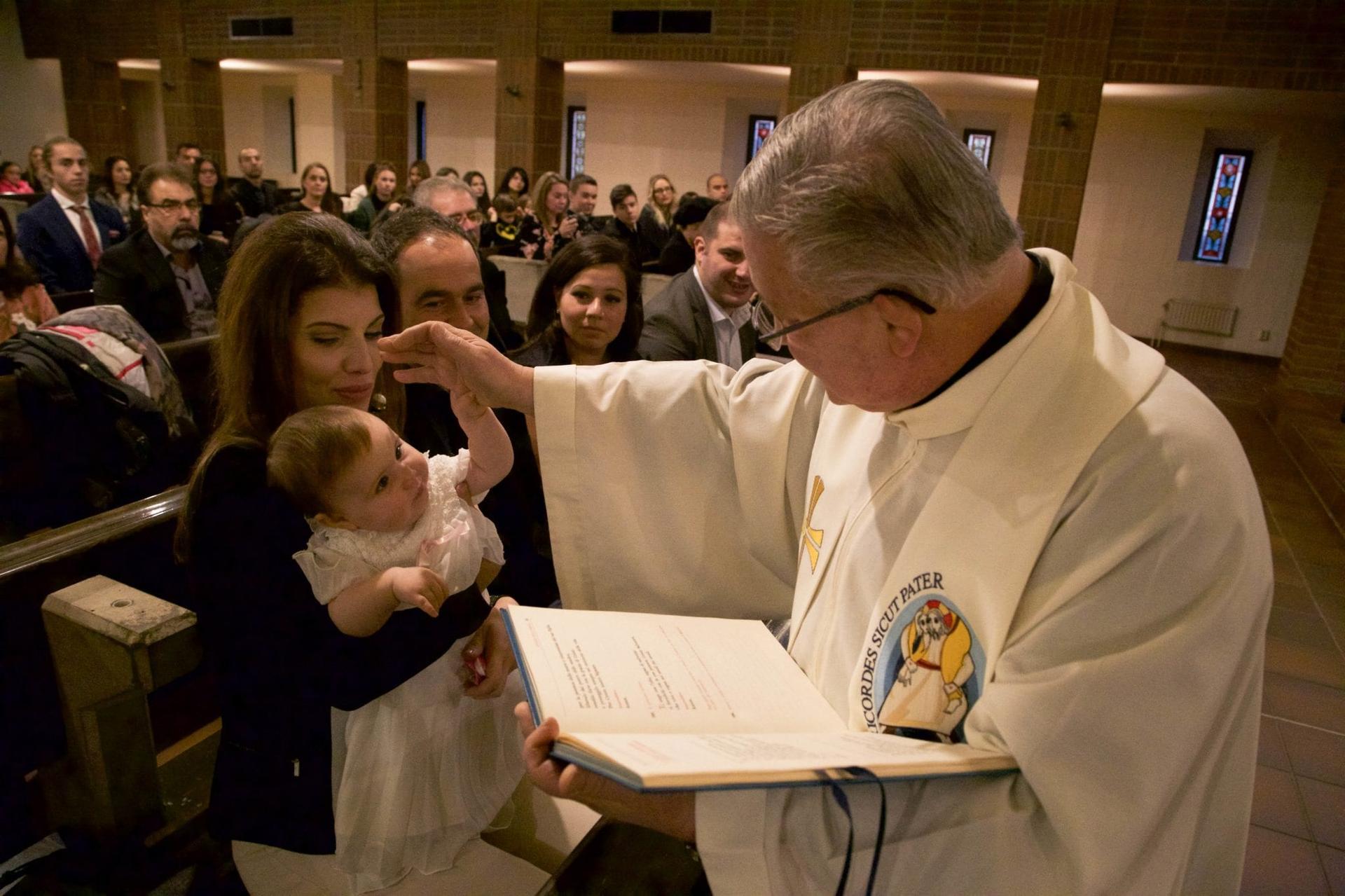ROME – Robert K. Merton, a famous American sociologist, was, by all accounts, a smart guy. Among other things, he popularized the expression “law of unintended consequences” to refer to situations when a person does something for one reason, but he or she finds that it produces all sorts of other unexpected results.
Right now, Father Matthew Hood of the Archdiocese of Detroit is living proof of Merton’s dictum.
As is well documented, Hood saw a note from the Vatican’s Congregation for the Doctrine of the Faith released August 6 stating that baptisms performed using the formula “we baptize you in the name of the Father, the Son and the Holy Spirit” are invalid, and that anyone baptized using “we” instead of “I” needs to be baptized again.
That triggered a memory for Hood, who in April had watched a family video of his own baptism at St. Anastasia Parish in Troy, Michigan, thirty years ago. It showed that Deacon Mark Springer had indeed used the formula “We baptize you,” thus rendering Hood’s baptism – not to mention his ordination to the priesthood and all the sacraments he’s celebrated since that happened in 2017 – invalid.
What followed for Hood has been a whirlwind. He was baptized, confirmed and received the Eucharist on August 9, then ordained a transitional deacon on August 15 and a priest on August 17. In other words, for him, life is more or less back to normal.
It’s not quite the same for all those who received the sacraments from Hood over the last three years, while he’s been serving as an associate pastor at St. Lawrence Parish in Utica, Michigan, and before that at Divine Child in Dearborn.
For instance, there are people whom Hood attempted to confirm after they’d completed RCIA, which is the Church’s program of initiation for adult converts to the faith, who now have to make other arrangements to complete the sacraments. The Archdiocese of Detroit has created a web page informing anyone confirmed by Hood that it wasn’t that valid, that his confessions didn’t provide sacramental absolution, that the marriages he presided over may be invalid, and that any anointings of the sick he performed weren’t valid either. Further, those baptized by Springer who went on to receive other sacraments will need to receive them again in order for them to be valid.
Ironically enough, those whom Hood baptized actually are okay, since Church law says that anyone, not just a priest, can administer that sacrament, and he always used the correct formula.
One might imagine Hood would be ticked at the Vatican for turning his world upside down, but that’s not the case.
“All of this might give the impression of an administrative act, but it’s something that needs to be taken seriously because the sacraments are so serious,” he said. “The sacraments come from Christ and they’re entrusted to the Church. It’s important to celebrate the sacraments according to the precepts of the Church.”
How is this situation an illustration of the law of unintended consequences?
Well, although Springer himself hasn’t spoken out since the news broke, it’s reasonable to assume that he used the “we” formula with good intentions. In its statement on the case, the archdiocese said that Springer, who’s now retired and no longer in active ministry, was told to stop using “we” in 1999 and abided by the decision.
In general, people who want to substitute “we” for “I” in the baptism rite generally do so because they’re concerned about clericalism, wanting to emphasize the role of the community, especially the family, in what it means to incorporate an infant into the Church.
In that August 6 doctrinal note, the Vatican said it was responding to cases in which a baptism was carried out with the language, “In the name of the father and of the mother, of the godfather and of the godmother, of the grandparents, of the family members, of the friends, in the name of the community we baptize you in the name of the Father and of the Son and of the Holy Spirit.” Obviously, that’s an attempt to be inclusive, to recognize the role of all those parties in a child’s faith journey, which are certainly noble concerns.
Yet in this case, Springer almost literally destroyed the village in order to save it.
Perhaps all this suggests a lesson for would-be reformers in the Church. It’s among the glories of the Catholic Church that people feel so passionately about it, that they’re willing to spill their heart’s blood pushing it to become the best version of itself as they see it. That passion is what keeps the Church alive, and whatever one’s cause, we would all be poorer if they didn’t advocate and press and make their case.
However, in doing so, beware of the law of unintended consequences. Don’t take steps in the name of “the people” that will actually bring pain, confusion and unnecessary headaches to the very people would-be reformers are claiming to serve.
In other words, the moral of the story is look before you leap. An old idea, perhaps, but one that never really goes out of fashion.
Follow John Allen on Twitter at @JohnLAllenJr.












